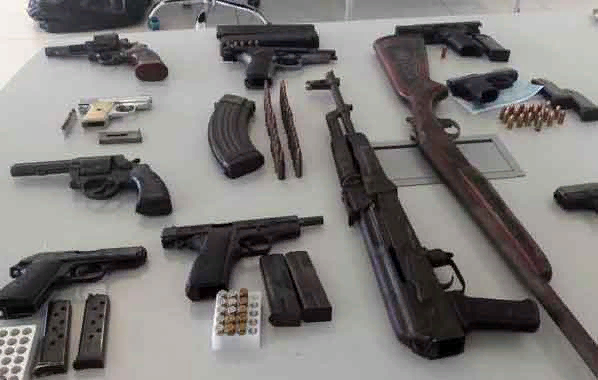
Links between uniformed officers and organized crime are revealed in Panama
Havana, April 10 (RHC) - Data from the National Police (PN) reveal that investigations from 2017 to 2022 involve more than six thousand uniformed officers with links to organized crime, according to the newspaper La Estrella de Panamá.
The director of that entity, John Dorheim, acknowledged the existence of 5,128 cases involving 6,743 police officers during that period.
For its part, the National Aeronaval Service (Senan) dismissed 39 agents (2018 to June 2022) for the same reason, as detailed to this medium by Major Edgardo Coba, then director of Internal Affairs, currently in charge of the Atlantic area.
It is impossible to get any of them to admit to having collaborated with the drug trafficker, even if they have been convicted or have paid their sentence, the news report added.
The National Border Service (Senafront) did not report cases of this nature between 2019-2022, according to director Oriel Ortega.
Incurring in a serious offense can occur when revealing confidential reports to people outside the institution, proceeding with negligence or abusing one's position, as often happens when organized crime infiltrates the institution.
Dorheim also said that they are investigating matters related to acts of corruption, among which are the alteration of signatures or documents, negotiating with inmates or relatives of prisoners, as well as introducing or allowing drugs to enter the prison.
For the former Minister of Security, José Raúl Mulino, these cases are caused by money and greed.
In statements to the newspaper, the directors of the different institutions also pointed out that there are few cases that start due to threats, although when they fall they are prisoners of an endless chain of extortion.
The police are a valuable source of information for the structure of the cartel, or the gang in charge of the transfer. They warn them in advance about the actions.
The head of the PN indicated that they usually alert about the availability of units in their area of operation or mobility corridors so that they can carry out their actions with the certainty that they will not be apprehended during the displacement.
However, the ads most valued by the cartels are the operations against them, or knowing which criminal group is being targeted; in addition to the payments they make to protect a container with narcotics bound for Europe or the United States.
The drug report published by the United Nations Office on Drugs and Crime (2021) identifies the maritime route as the main route to take drugs from Colombia through the Pacific to the coast of Mexico in submarines and in containers from the Andean region from Colombia to Central and Western Europe.
To counteract the infiltration of organized crime, the Police carry out covert operations against its own members. Competent units can order surveillance and follow-up, after complying with the legal formalities. (Source: Prensa Latina)

